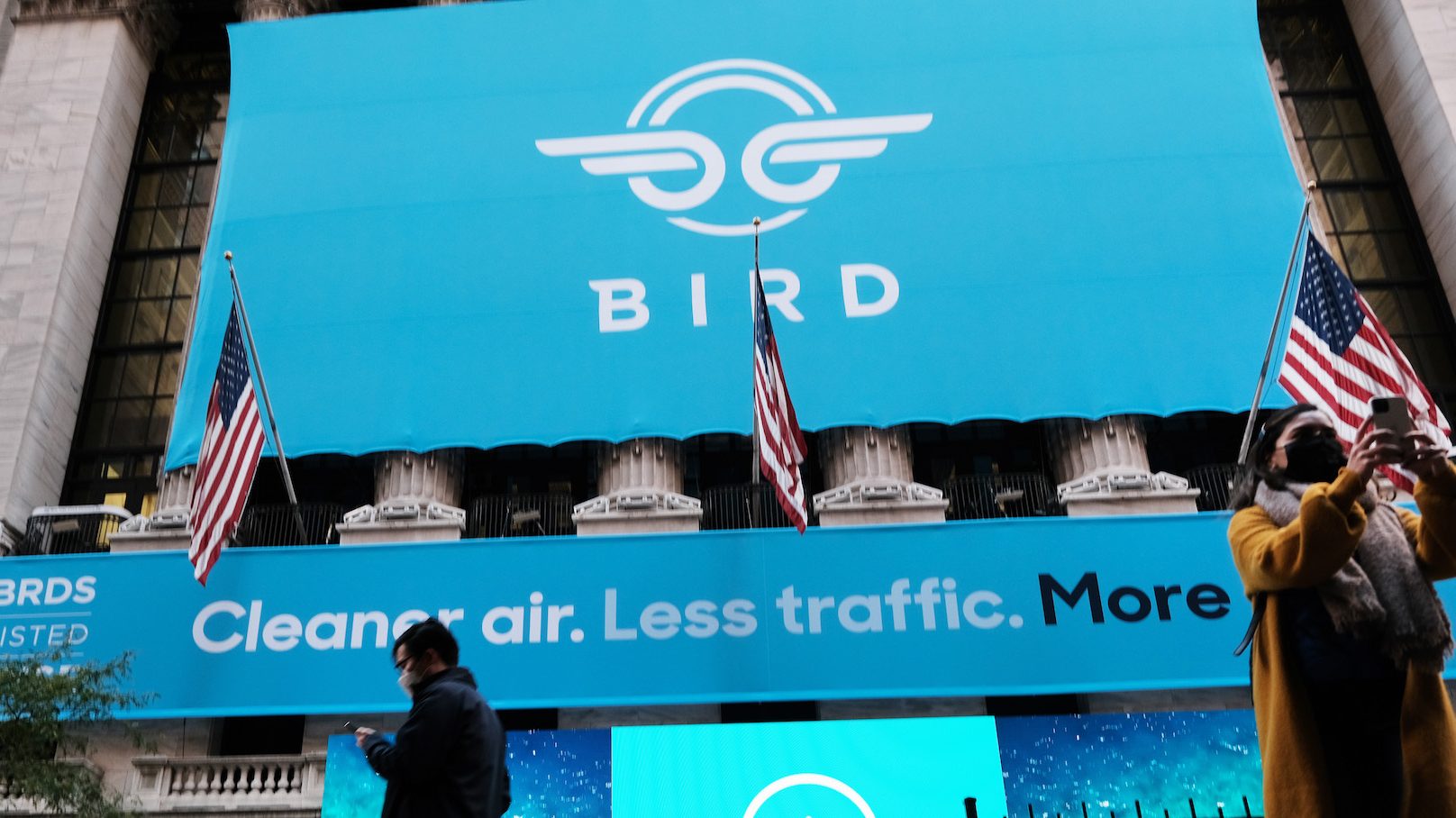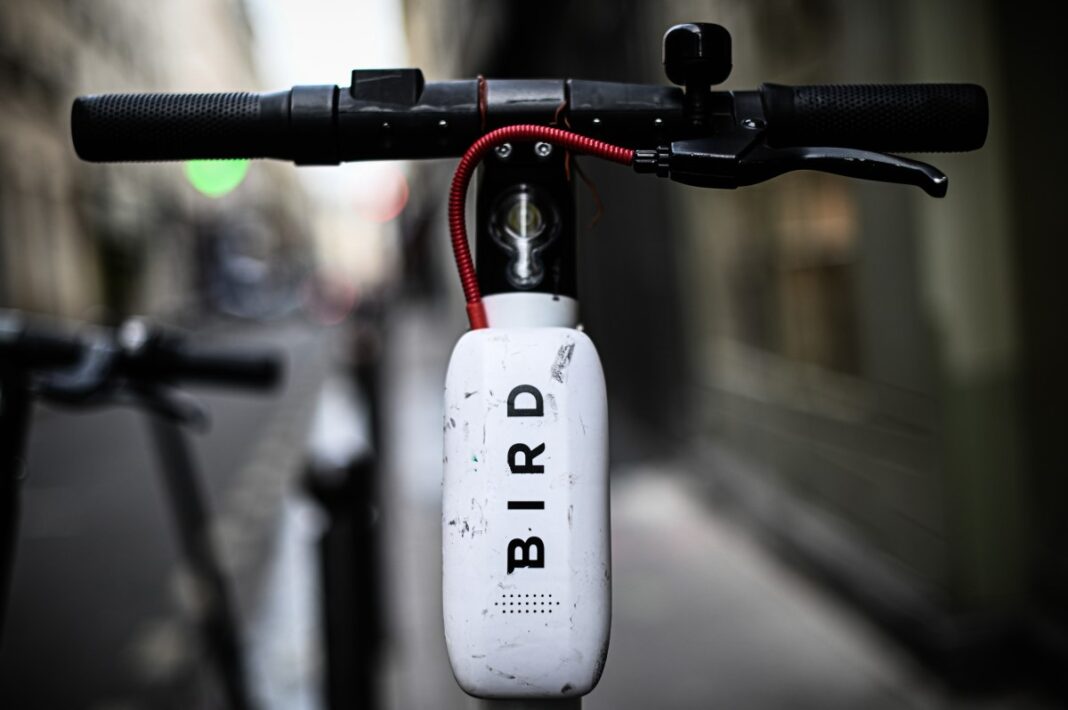Bird has filed for Chapter 11 bankruptcy, capping off a turbulent year for the electric scooter company.
In a press release today, Bird confirmed that it had entered into a “financial restructuring process aimed at strengthening its balance sheet,” with the company continuing to operate as normal in pursuit of “long-term, sustainable growth.”
Founded in 2017 by former Lyft and Uber executive Travis VanderZanden, Bird is one of numerous startups to introduce dockless micromobility platforms around the world, allowing city-dwellers to pay for short-term access to electric scooters or bikes. The company went public in late 2021 via a SPAC merger, but in a crowded market built on questionable economics, its stock went into a perennial nosedive, with its market cap dropping from more than $2 billion at its New York Stock Exchange (NYSE) debut to just $70 million 12 months later. This decline led the NYSE to issue a warning that Bird’s share price was too low.
Things didn’t improve, and with its share price continuing to plummet, CEO VanderZanden departed in June with the company eventually delisted from the NYSE in September.
Separately, Bird also announced a round of layoffs shortly after buying rival Spin for $19 million.

Bird lands on the NYSE Image Credits: Spencer Platt / Getty Images
Chapter 11
A Chapter 11 bankruptcy will enable Bird to restructure its financials without disrupting day-to-day operations, with Apollo Global Management division MidCap Financial among existing lenders providing $25 million in financing through the bankruptcy proceedings.
The ultimate goal is to sell Bird’s assets, with a so-called “stalking horse” agreement kicking off a bidding process designed to get as much value out of Bird as possible, with its lenders setting a baseline bid before opening things up to external suitors over the next four months.
Interim CEO Michael Washinushi will continue in his role before and after the restructuring, according to the statement.
“This announcement represents a significant milestone in Bird’s transformation, which began with the appointment of new leadership early this year,” Washinushi said. “We are making progress toward profitability and aim to accelerate that progress by right-sizing our capital structure through this restructuring. We remain focused on our mission to make cities more liveable by using micromobility to reduce car usage, traffic, and carbon emissions.”
It’s also worth noting that Bird’s Canadian and European operations are not part of this bankruptcy filing, and will “continue to operate as normal,” the company said.
This latest news comes just a day after competitor Micromobility.com was delisted from the Nasdaq over its failing stock price, three years after it too went public via a SPAC merger. And in Europe, dockless scooter startup Tier recently laid off 22% of its workforce, which followed Dutch e-bike startup VanMoof’s bankruptcy proceedings.
So all in all, it hasn’t been a great year for the micromobility realm.
Source link









